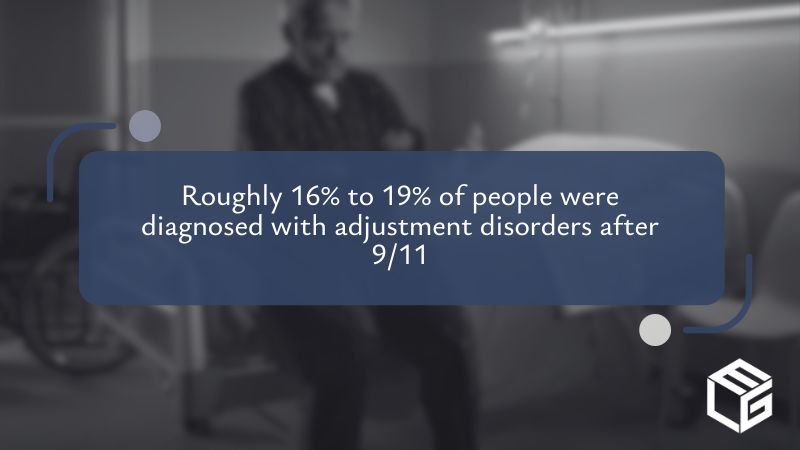Recognizing the signs of adjustment disorder
Individuals affected by the 9/11 events have a high chance of developing adjustment disorders as a result of direct trauma or loss of loved ones. For those people, signs and symptoms of adjustment disorders may show as follows:
- Feelings of sadness and/or hopelessness
- Anxiety or worry
- Excessive crying
- Difficulty sleeping
- Withdrawal from relationships and social settings
As documented by the American Psychiatric Association's Diagnostic and Statistical Manual of Mental Illnesses, adjustment disorders can be classified as follows:
- Adjustment disorder with depressed mood
- Adjustment disorder with anxiety
- Adjustment disorder with mixed emotions or disturbance and conduct
- Adjustment disorder with disturbance of conduct
- Adjustment disorder with mixed depression and anxiety mood
- Adjustment disorder unspecified
You may be diagnosed with one of the adjustment disorders listed above. In addition, your doctor may diagnose you with situational depression, which is another term for adjustment disorder, as noted by the Cleveland Clinic.
How 9/11 victims with adjustment disorder can get compensation
Survivors and responders with adjustment disorders may qualify for financial assistance through the 9/11 Victim Compensation Fund. The VCF aims to compensate individuals for their pain and suffering caused by conditions related to 9/11, as well as healthcare expenses and lost wages.
In addition to the VCF, the World Trade Center Health Program (WTCHP) can provide long-term healthcare for approved conditions, including adjustment disorders. Over 80,000 people receive mental health treatment for their conditions associated with 9/11 under the WTCHP.
By filing your claim, you can be among the many who receive your rightful compensation under the 9/11 VCF. Contact our experienced lawyers today to help file your claim.
